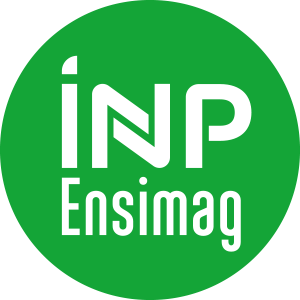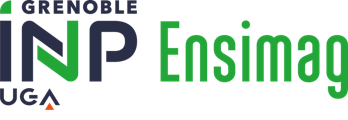Number of hours
- Lectures 11.25
- Tutorials 33.75
ECTS
ECTS 3.0
Goal(s)
To give the basic principle of digital transmission, consisting in sending digital information into physical (analog) channel. To give an overview of the digital communications techniques and equipments used in telecommunication radio-frequency.
Contact Laurent ROSContent(s)
1. Signal processing tools : random signal, narrow-band signal complex representation
2. Base-band digital transmission
- line code
- Nyquist criteria, and Matched filter (AWGN channel case)
3. Carrier frequency digital transmission :
-Digital modulation : I/Q modulation-demodulation, linear (phase, amplitude, quadrature-amplitude) modulations, frequency modulation, differential coding
-Coherent reception (AWGN case): detection theory, performances (bit error rate, spectral efficiency, distance from information theory),
-Effect of synchronisation errors
4. Radio transmission systems :
General information about transmission systems (microwave links, satellite links, and radio-mobile communications, introduction to advances transmissions techniques such as CDMA (used in UMTS, ...) and OFDM (used in DVB, TNT, ...).
The course will be illustrated by classical "exercices sessions" but also by "sessions on computing machines" that will result in the redaction of a report which will be noted (1/4 of the overall mark).
Prerequisites
Basic courses in signal processing, and in information and coding theory
1 Written exam (2 h) (E).
1 report after "sessions on computing machines" (C)
N1=E1x0.8 + Cx0.2
N2=E2x0.8 + Cx0.2
Glavieux, M. Joindot. Communications numériques, introduction. Collection pédagogique des télécommunications, Masson, 1996.
J. Proakis. Digital Communications. McGraw-Hill, 2000.
Frédéric de Coulon, « Théorie et Traitement des Signaux », presses Polytechniques Romandes, 5°édition, 1998



